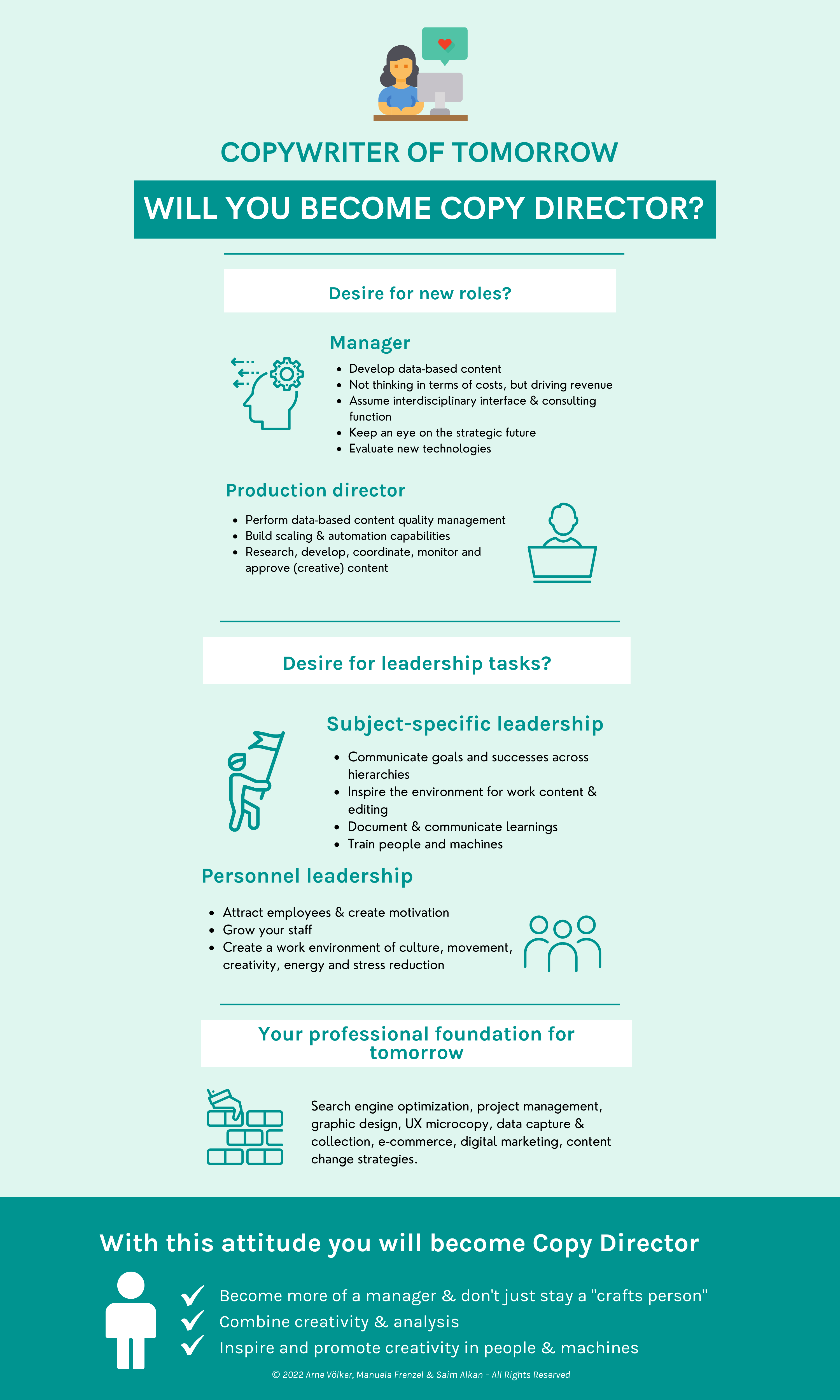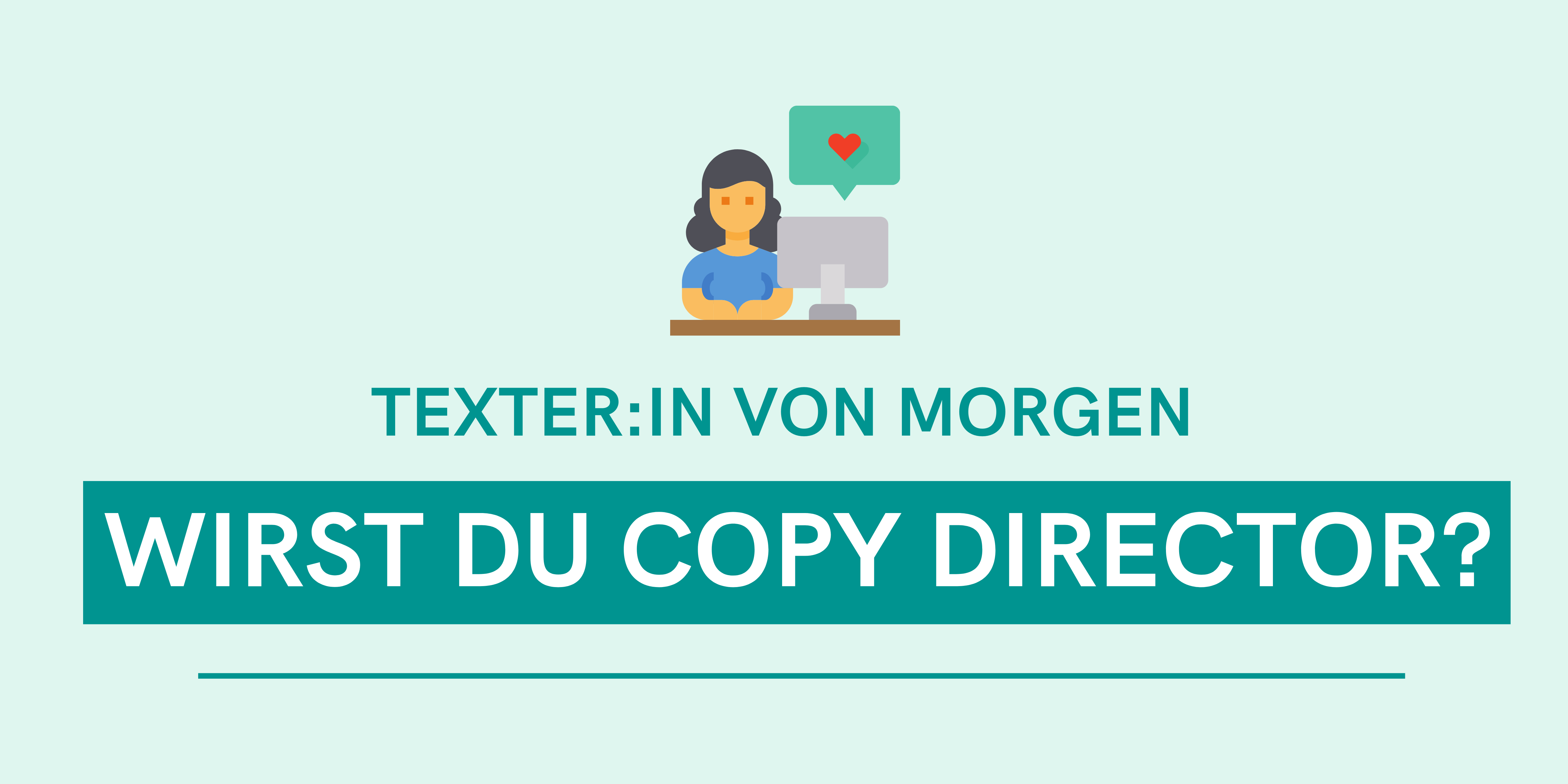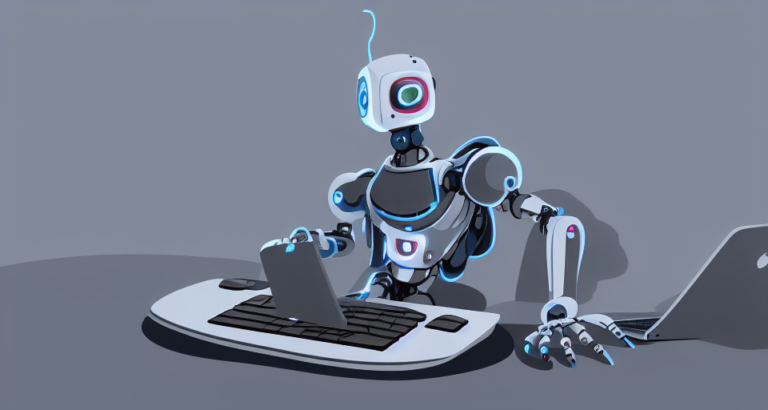What will you be when there's no need for copywriters anymore? Copy Director!
More and more blog posts. More and more personalized campaigns. And formulated texts for every product in e-commerce. Never has more been written and published than today – the amount of content is exploding.
Such a mass of content can only be created because artificial intelligence is now helping with text production. But if machines can now write with artificial intelligence, will copywriters still be needed at all? Will there still be a role for us copywriters? And if so, what does that role look like?
I have talked about this with Manuela Frenzel and Saim Alkan for a long time. We believe that, yes, there is a role for us. But it may look very different from today. We have summarized the results of our discussion in an infographic: Copywriter of tomorrow – will you be a Copy Director?
In whole I show you this graphic at the end of this article. Let's zoom into three sections here first.
What will be left of the copywriter
At some point, artificial intelligence may replace every profession, they say. It's not a question of if. It's just a question of when. I've always said to myself: When that time comes, I want to be at the forefront. I won't be abolished – I'll be the copywriter who abolishes himself.
It will still be a while before this happens. But already today, many possibilities are opening up – and with them, many things are changing. You can generate headlines with Large Language Models like GPT-3 or have an article written paragraph by paragraph. Or use data-to-text solutions like AX Semantics to precisely generate hundreds of product texts in multiple languages.
Because how you text changes, what you need to be able to do as a copywriter also changes.
Into the future with two questions
We want to look to the future. But not with a grand utopian vision. We want to be realistic. That's why we asked ourselves: What kind of people are they? What do they have to be able to do, the copywriters of the future? If we explain this neatly, you'll know the answer to the following questions by the end of this article:
1. How can you continue to make a living with text? Dear colleagues, this is for you. How can we make our profession fit for the future? What skills do we already have? And what attitude do we need to adopt so that we can swim on top in the flood of content?
2. What kind of people should generate your content? Whether your brand was a publisher twenty years ago or not, if you run a website or store today, you're a publisher. You have to create content. Software helps you do that – and a few people who know how to use the software. What should these people be able to do?
The answer to question one is: Become a copy director.
The answer to question two is: employ copy directors.
Saim goes into more detail about how such a Copy Director fits into a corporate environment and what roles he or she fulfills on the team – and what she or he must therefore be able to do. You can read his article here: The copywriter of tomorrow – How companies are turning text into a sales driver with the Copy Director
In my article, I'll focus on the first question: How to become a copy director. What that means for your job description. And what you should already be able to do in order to succeed in this transformation.
I'll also show you why leadership has to happen even when there's no team to lead – and you're all alone with you, your ideas, and a few AI tools. Overall, if you are not completely uncommunicative and retreat exclusively into your own cave, this could be exactly the same thing that enables you to lead well in a team. And to lead, you can be employed – but you can also go solo.
So here goes. Let's dive deeper. These are the three chapters:
- As a copy director: Do I have to want to lead?
- As a Copy Director: Do I have to be employed?
- As a Copy Director: What do I need to be able to do?
As a copy director: Do I have to want to lead?
Desire for leadership tasks – that is the intertitle in the center of our graphic. And we think so: You need to bring this desire with you if you want to produce texts as a professional in the future. But why, really? Aren't we all actually quite good at copywriting on our own?
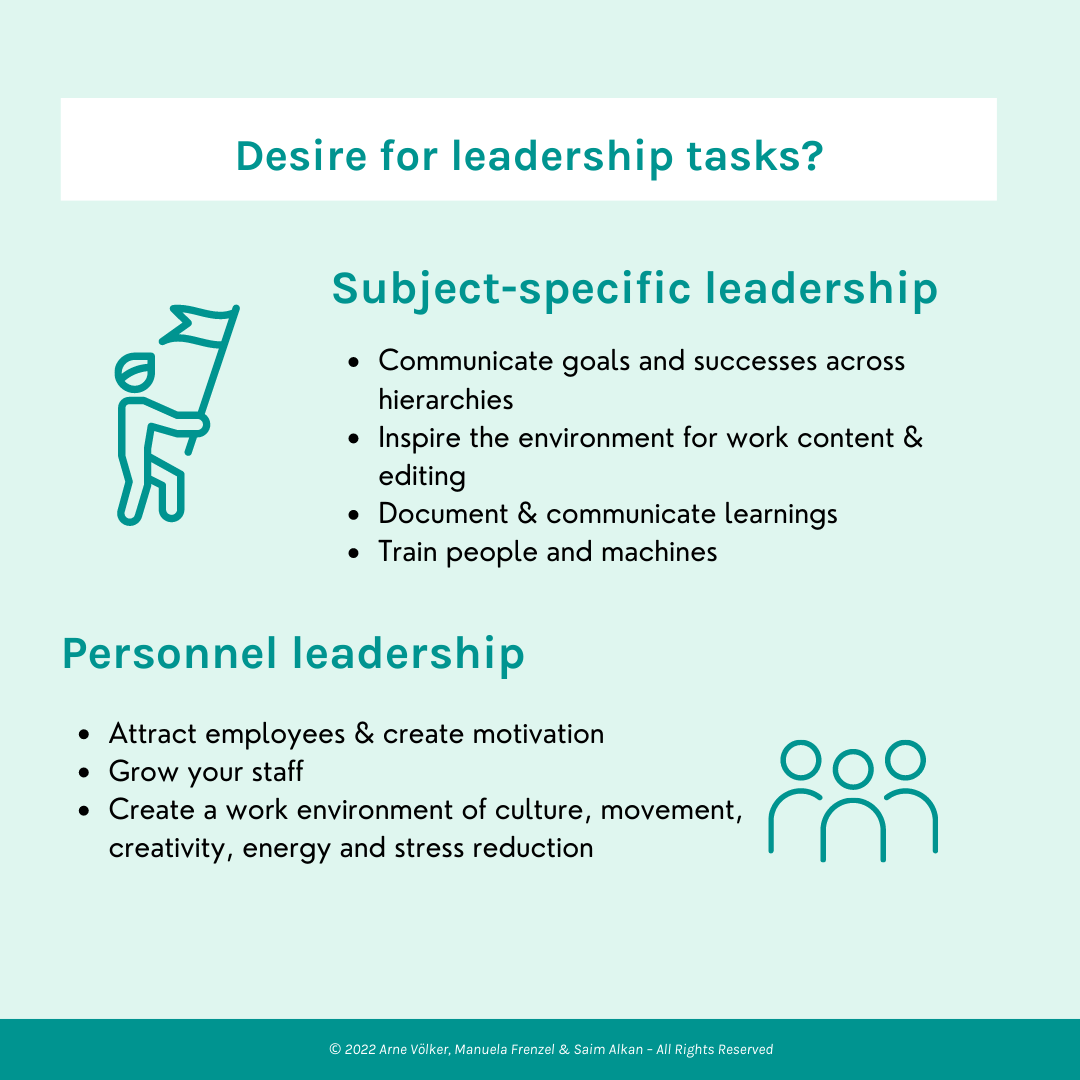
Desire for leadership: The center of the infographic
Text production: Alone remains small
A lonely author writes his book. He sits alone in his garret, and if his name is Schiller, an apple rots away in the drawer. When it comes to the written word, we like to see the lone warrior in front of our eyes. He does everything all by himself.
Yes: writing can feel lonely. Every author is alone with his text. That's why writing is also a great job for people who like to be alone – at least at times.
For books, the attitude may work. Even for a small blog. A single person can write enough to get the product done. But what if the target is a catalog like IKEA's or Otto's? Or a magazine like Fit for Fun or Stern?
Editorial office: Growing as a team
Writing can also be done alone. Publishing, on the other hand, is teamwork. Whether on a news site. In an e-commerce store. Or at many of the big blogs: Publishing is teamwork.
Producing much more content used to mean employing many more people – a team. An entire editorial team. And such a team has always needed leadership. And there have always been job titles for it. Editorial director. Editor-in-chief.
We were reminded of this after the discussion between Saim and me (watch here on YouTube) our participant Daniel Ahrweiler recalls: Isn't the new task actually the same task that an editorial manager has always had?
Artificial intelligence: team without team
Yes. Exactly. Editorial management. Scaling content today can still be done as a team, with lots of people writing. A team of ten people can decide to stay at ten – and now write a hundred times as many blog posts with the help of artificial intelligence.
But it also works the other way around: for example, writing the same amount of articles with fewer people. Then the team shrinks, with the same output. One person writes ten times as many articles.
However, at the beginning of this development there is always a human being. In the meantime, software is helping him. Perhaps he remains alone with his machines. Then he has no one to drink a coffee with him in the cafeteria. But he still has to lead: He has to tell the machines what to write.
Leadership: leadership without team
In the past, only a few people could become editorial directors. There were only a few large teams with many copywriters. It was simply too expensive to pay so many people for copywriting.
Today, machines can take over some of these tasks. But someone still has to tell you where to go so that the texts come into being. And even if you no longer need ten people to write a hundred articles today, you still have to take responsibility for a hundred articles.
There is still a need for leadership, guidance, responsibility. Today, it is no longer the size of the team that determines when a leader is needed. Today, people have to rise to leadership positions because of the amount of output. Even if they don't lead people – but only train machines.
The bottom line on leadership: Yes. You must want to lead. Maybe just machines. Maybe people, too. Essentially, you just have to make decisions. Whether this statement is right or wrong. Or whether this sentence sounds better than that one.
"Making good decisions is a crucial skill at every level."
Peter Drucker, pioneer of modern management theory
As a Copy Director: Do I have to be employed?
Short answer. No!
The long answer is a bit more complicated: you can continue to travel independently. But not entirely on your own. You will work with others. Maybe with people. And certainly with machines.
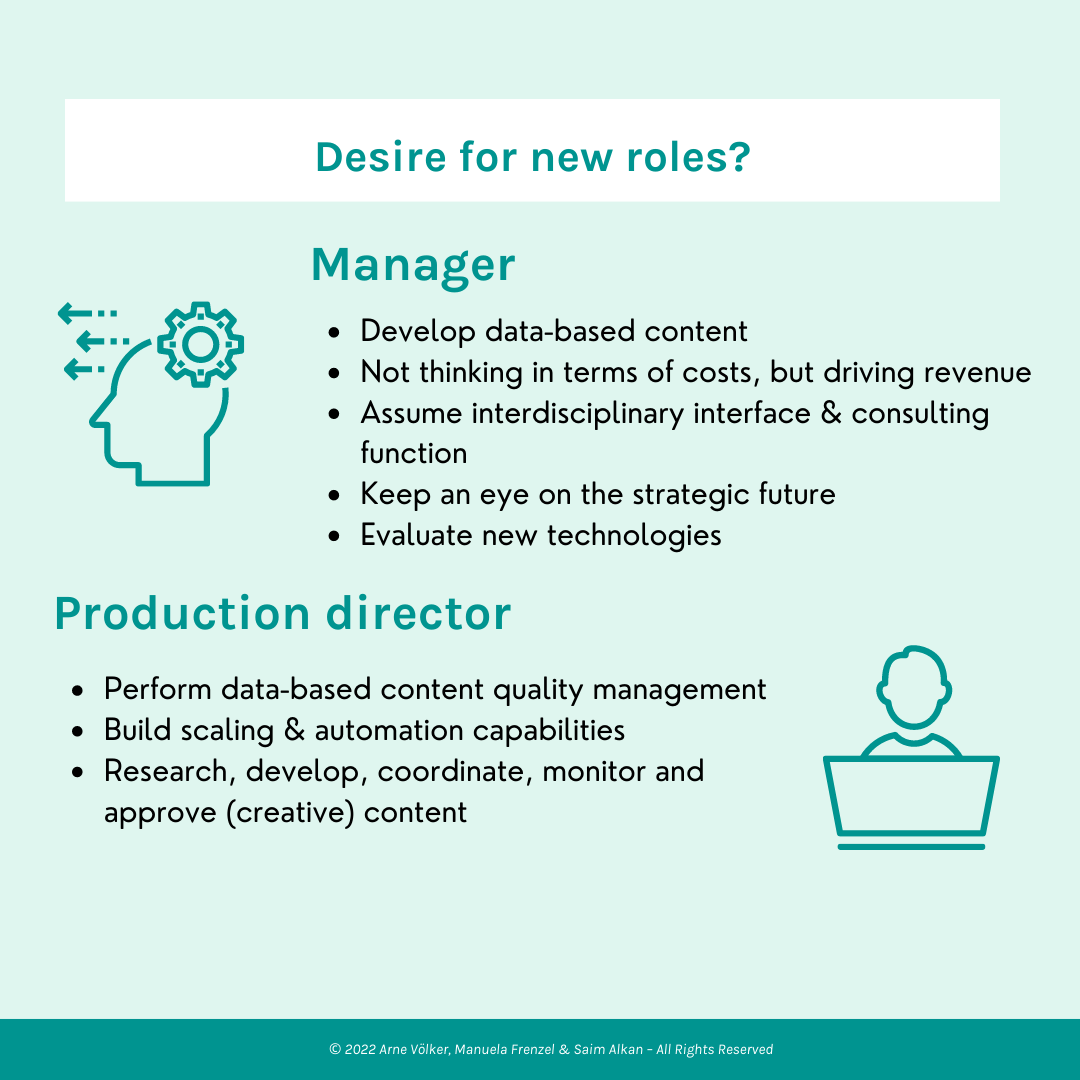
At the top of the graphic: The new role models
Why did I start in the middle on my journey through graphics? Because I prefer to avoid all those job titles at the top of the graphic. Production Manager:in is what it says. And Manager:in. That sounds so corporate!
What else does this have to do with my solo self-employment as a copywriter? Can I retain my independence? Or do I now have to save myself under the roof of a company that produces content?
But these role descriptions came up in our joint discussion. And rightly so. Because they are part of a complete picture. Text production becomes more management, we all believe that, Manuela, Saim and me.
But management is not necessarily the business of employees.
Freelancers can also manage
Most people whose job title is manager are employed somewhere. They have authority to issue directives. In other words, they can tell their subordinates what to do and what not to do.
Such instructions are anything but effective. This has now become common knowledge in management. Micromanagement has fallen into disrepute since the 1950s at the latest.
Back then, management guru Peter Drucker introduced the concept of Management by Objectives to the world. The latest development is called Objectives and Key Results (OKR) – bestselling author and venture capitalist John Doerr writes about how this makes Intel and Google successful.
It is the common goal.
The important thing in management is not the directive. But the interface between different opinions. The mediation and consultation. The analysis. In the end: the goal that everyone can agree on. And for which everyone can work together. For such a goal, you don't need the authority to issue directives – you need the authority to issue guidelines.
Consultants can give Direction, too
When they want to solve a problem, when they are looking for a new strategy: Large companies with many of their own employees also regularly book consultants. According to their title, they are consultants. They do not have the authority of managers. But in terms of their function, they too are often project managers.
For the manager role, it does not matter where it is anchored. It does not matter whether it is performed by employees or consultants.
My role as a consultant hardly changes with more AI. I don't write all the pages for a website relaunch myself anyway. I help customers create content. No matter who writes it in the end: Employees, employees at the customer. A team that I put together. Or, increasingly, artificial intelligence.
A manager of its own production
If you don't have particularly high standards for originality and utility, you can quickly fill one SEO-oriented niche page after another with content. In the past, you would have bought texts for a word price of less than 10 cents on portals like Textbroker.
Today, artificial intelligence does that for you.
You can have AI do research for you on the web, and you can create an outline and brief in no time. Then you have a large language model rewrite the findings until no plagiarism is legally detectable.
That doesn't have much to do with texts, even if many texts are created in this way. But production certainly is. Production management is important as a function – but the ability to manage production alone is not enough.
The bottom line on employment: Teams are becoming increasingly important. The legal form is basically irrelevant. You can agree on goals with other people even if you are not their boss.
"The factory of the future will have two employees, a human and a dog. The human is there to feed the dog. The dog to keep the human from touching the equipment."
Warren G. Bennis, president of the University of Cincinnati
As a Copy Director: What do I need to be able to do?
With data-to-text solutions like AX Semantics, you have to think beforehand, then the software scales your thoughts into the surface. You have to be really good so that it doesn't duplicate your thinking errors.
Large Language Models like GPT-3 give you hundreds of headline or paragraph ideas in minutes. Like an army of junior copywriters. You have to be really good to make a good selection from them.
Either way, your expertise is in demand. You are the human in the loop. With data-to-text before the AI texts. With large language models after the AI has written. But in both cases: You have to know what you want. And know what you are doing. And in your human way, better than the machine.
How will you do that – and what do you have to bring along in detail? And what do you still have to work on?
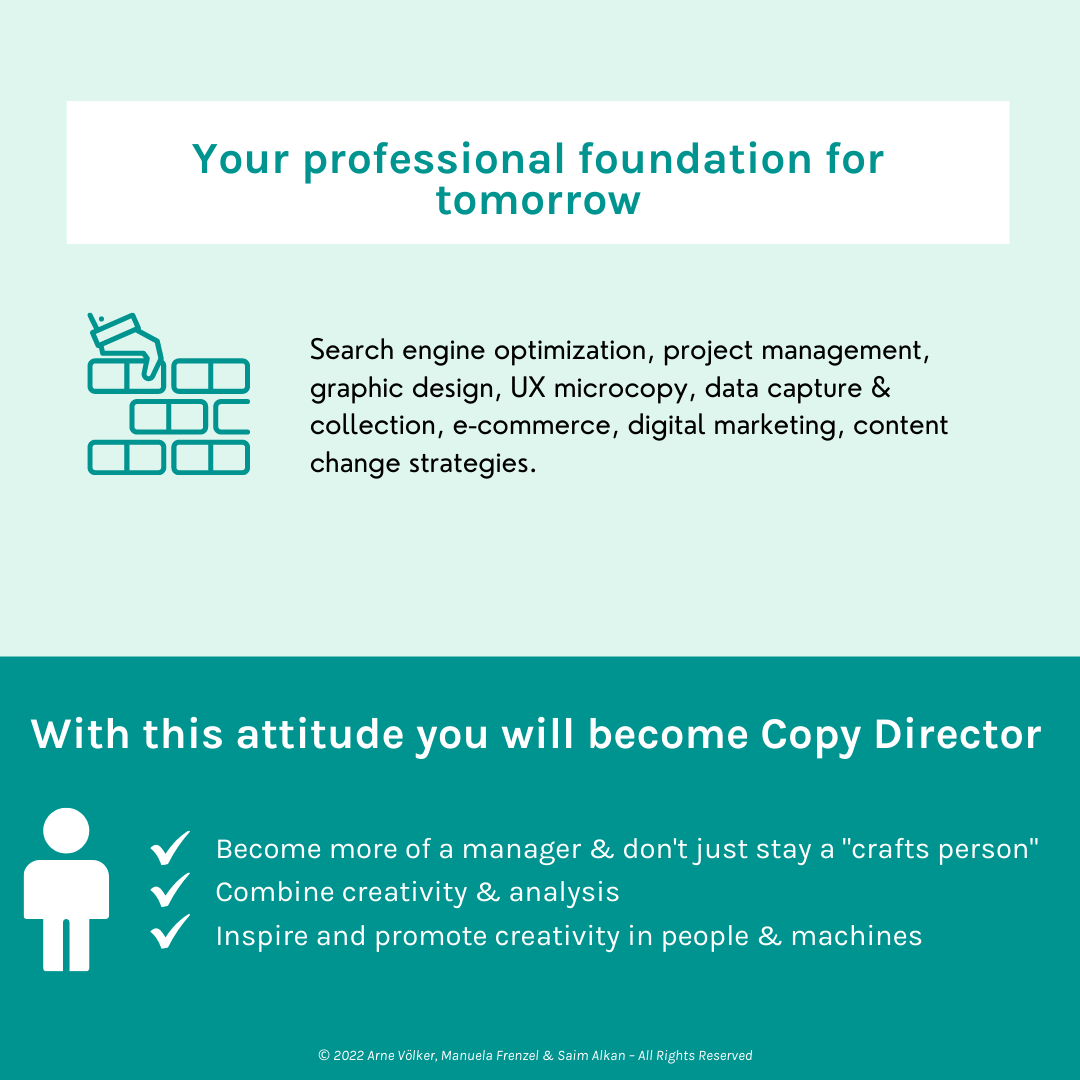
The basis: Lots of expertise and an open attitude
Become a senior (even without training)
What has always been true for all copywriters applies to the copy director: Copywriting can be learned, but only in copywriting. There are still hardly any training programs – and certainly not the one standardized final exam. Any mechatronics engineer or nurse can become a copywriter. And become good at it – with enough practice.
Copywriting has always been an ideal profession for career changers. The change to copy director doesn't change that.
Practical experience is the only thing that counts when it comes to copywriting. The question is: Where can you gather it? Where can you actually still learn copywriting when there is less and less manual work and more and more machines? Will there still be jobs for juniors? Where and how can you become a senior copywriter if you've never been a junior copywriter?
I don't have an answer to these questions. And that worries me a bit. Do you have an idea where juniors can learn today? Then write to me!
Be curious (as always, actually)
When it comes to copywriting, you can't avoid familiarizing yourself with new subject areas again and again.
Whether you write about headphones today and coffee machines tomorrow. Or every day about food for allergy sufferers, but today about the absence of lactose and tomorrow the one about the pros and cons of replacing gluten in gluten-free products. Variety is your world – you're at home in it because you're curious.
For the future, just direct some of your curiosity away from your areas of expertise – and toward your profession itself. Try the tools that are coming out every day in artificial intelligence. And broaden your foundation: from data science to user experience. In your new role as a manager, this broad knowledge will help you.
Sell yourself (not only the goods)
Whether designers or copywriters in advertising – or photographers or editors in the newsroom: we were always the ones who spent the money.
Our clients, our publishers – they have calculated for us what we cost. They implicitly made us understand that we could be just as creative for less money, couldn't we?
And who earned the money you were allowed to spend? That's right: the salespeople. Have you ever heard salespeople brag about how much sales they made – and what commission they got for it?
You can do that now. Today you can look into the analytics. There you can see not only whether your content works. You can also see how well it works. And you can tell your boss about it.
The conclusion on the subject of further development: If you're good at copywriting, you can do a lot of things already. In any case, be open to technology and data, then you'll quickly learn what you need to know. And otherwise: Just do it.
"The best way to predict the future is to create it."
Alan Kay, Sotware Pioneer and Godfather of the Graphical User Interface
Copy Director: A new title for a new attitude
Production manager. Manager. Editor-in-Chief. Editorial director. We've thought about a lot of function terms. Many are also here in the article and in the infographic. Each of these titles says something about one of the functions you'll need to fulfill in the future. But none says everything.
That's why we were looking for a new word. We didn't have to invent it, we found it: Copy Director – like Art Director.
In the Anglo-Saxon world, the title Copy Director is quite common in agencies and among advertisers. This is always the case when a copywriter is needed for a management role. For example, when it is a question of asserting the right tone of voice with product managers or salespeople.
We also know the term director from graphic artists. If they are senior enough, some of them become art directors. Then suddenly there's more to their job than just having ideas and designing layouts themselves. Then they select photographers and have them produce the images they have in mind. Or they send their assistants out to look for pictures. Art directors no longer create the images themselves. They have them realized.
This is the journey you have ahead of you if you are a copywriter today. You will write fewer texts yourself – be less of a craftsman. Instead, you will have more texts written – become more of a manager.
What's new is that the transformation to director doesn't require you to tell a single person what to do. It starts when you have software write your first project. Just try it out.
What did you experience while experimenting? What disappointed you? What excited you? Let me know – I look forward to sharing with you.
About the Author: Arne Völker trained as a journalist, was a screenwriter and copywriter. Today he works for his clients as a consultant and helps them scale content – recently also with artificial intelligence. That's how he becomes: "The copywriter who does away with himself."
This post first appeared May 27, 2022 on LinkedIn Articles
The infographic as a whole
